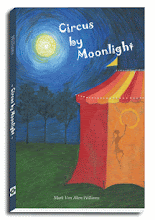There are only a few days left till the Presidential election. But until it’s over, I have a bone to pick with John McCain. He has been saying in his attacks against Barrack Obama that he (Obama) wants to “spread the wealth”—as if this is a bad thing.
Wait a minute! I thought that was what America was all about. Everybody gets the opportunity to better themselves.
It seems that John McCain has become the poster boy for John Edwards’ TWO AMERICAS. The conservative policies of the Bush administration, which McCain has voted for 90% of the time, have left an exceptionally high poverty rate, particularly among children. These policies have obviously made things worse than when Bush came into office. Changes in marginal income tax rates in the US combined with cuts in programs targeted on the most needy have reduced the tax burden of the very wealthy while leaving the poor worse off.
In Bush’s America the top 1% of American households is doing especially well. They have taken home more than one-quarter of all household income. They receive more than 63 times the average after-tax income of the poorest fifth. This means that the richest 3 million Americans earned more than the least well-off 100 million. Leaving markets alone to address people’s needs has only driven incomes further apart.
It has taken a banking collapse to bring the discussion back to our heritage of imposing limits on the inequality resulting from unequal market incomes. After all, that was what the welfare state was all about. From the late 19th century up to 8 years ago, the US adopted spending and taxing programs to mitigate capitalism’s worst effects. It was a system that helped provide poor parents jobs and income and support services they needed to keep them and their children out of poverty.
What we have ended up with though is a rise in unemployment and stagnation in family incomes. At the same time, the top 1% of households are getting one third of the benefits of Bush’s pro-investment tax cuts. These are the same policies that John McCain has proposed recently, saying that these tax cuts would increase public spending. But what we have seen for the past eight years is actually less spending, not more, yet still skewing the payout to the very wealthy. And let’s not forget, that the current fiscal nightmare in which any future effort to reduce the burgeoning deficit will only lead to demands to increase taxes on the working and middle classes.
While millions of working Americans are struggling to find adequate food, health care and housing for their families, the pay for wealthier Americans has risen dramatically—all fueled by growth in salaries, exorbitant bonuses, stock options and other compensation. This is while wages for millions of lower-wage workers has dwindled. Many find themselves unable to earn a living wage, and many have resorted to food banks and community centers for help.
We have just been educated to the excesses of the rich, while watching the nation’s CEO’s trying to explain their compensation to the people (In Congress and to the media). In the US the richest 0.5% of the population spends around $125 billion a year. This is equal to the total household expenditure in Italy. Steve Forbes has said that the rich have never had it so good. “These are the richest years in human history.”
Remember the term—Rich as Rockefeller? Well, John D. Rockefeller’s fortune of around $900 million, which many analysts thought would never be topped in real terms, wouldn't (in today’s money) even get you near the Forbes Top 10.
So, to John McCain, spreading this wealth around is a horrifying prospect. I guess the fact that he owns seven homes might indicate where his heart really lies.
Subscribe to:
Post Comments (Atom)







No comments:
Post a Comment